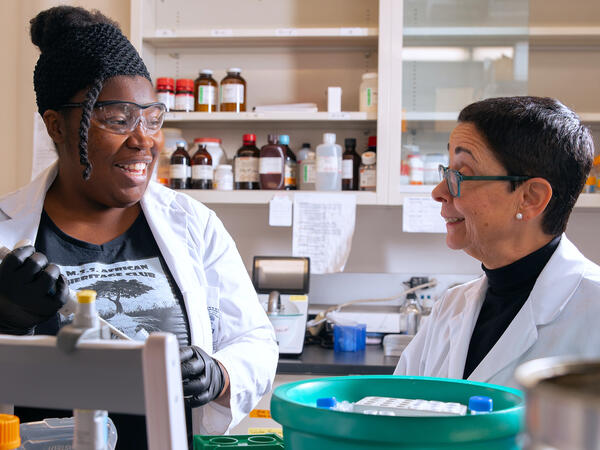
Reina
Bendayan
144 College Street
Toronto ON M5S 3M2
Canada
Area of Research
Reina Bendayan’s research program focuses on the mechanisms that regulate drug transport at blood-tissue barriers, including the blood-brain barrier, blood-testicular, blood-intestinal and blood-placenta barriers. Bendayan also leads clinical studies that investigate drug disposition, drug-drug interactions and drug use. In particular, the Bendayan group focuses on the transport of antiretroviral drugs to treat human immunodeficiency virus (HIV) infection.
Research Challenge
Millions of people worldwide are affected by HIV. Although the infection is well controlled in the periphery with the use of combined antiretroviral therapy, there is no cure for this disorder, due to viral persistence at cellular HIV reservoirs. Persistence at these sites can be due in part to members of the ATP-binding cassette (ABC), a subgroup of membrane-associated drug efflux transport proteins known to be present at several blood-tissue barriers, preventing anti-HIV drugs from penetrating cells.
Proposed Solution
The overall aim of Bendayan’s research program is to investigate the location, expression, activity and regulation of several membrane transport proteins that are involved in the disposition of antiretroviral drugs at blood-tissue barrier sites (i.e., at the blood-brain barrier). In particular, the Bendayan group studies the role of efflux pumps under normal physiological and HIV-associated neuro-inflammatory conditions. Her group has also examined novel molecular targets for the treatment of HIV-associated brain inflammation. Recently, she has initiated a new line of research investigating the regulation of folate transport to the brain to identify novel approaches for the treatment of cerebral folate deficiency.
Impact to date
The Bendayan laboratory has identified the role of membrane drug efflux transporters in limiting the penetration of antiretroviral drugs at several sites of HIV infection and persistence, such as the brain, testis, peripheral and tissue T-lymphocytes. Her group has also uncovered a novel approach to augment folate delivery to the brain in cases of cerebral folate deficiency. Bendayan’s research work is funded by grants from the Canadian Institutes of Health Research, Natural Sciences and Engineering Council of Canada, Canadian Foundation for AIDS Research, and the Ontario HIV Treatment Network, Ministry of Health of Ontario.
In January 2023, along with Dr. Robert Thorne from Denali Therapeutics and University of Minnesota, Professor Bendayan co-Chaired a Keystone Symposium conference on Drug Delivery to the Brain: Challenges and Progress. The event directly addressed the urgent scientific need for innovative, new approaches to central nervous system (CNS) drug delivery, an important area of research that lies at the crossroads between many different fields, including physiology, pharmacology, pharmaceutical science, neuroscience, neurosurgery, engineering, genetics, and vascular biology, among others.
Publications
Keywords: drug transport, therapeutics, HIV, HIV treatment, pharmacokinetic, pharmacodynamic, renal, intestinal tissue, testicular tissue, brain tissue, human immunodeficiency virus, cancer, blood-brain barrier


